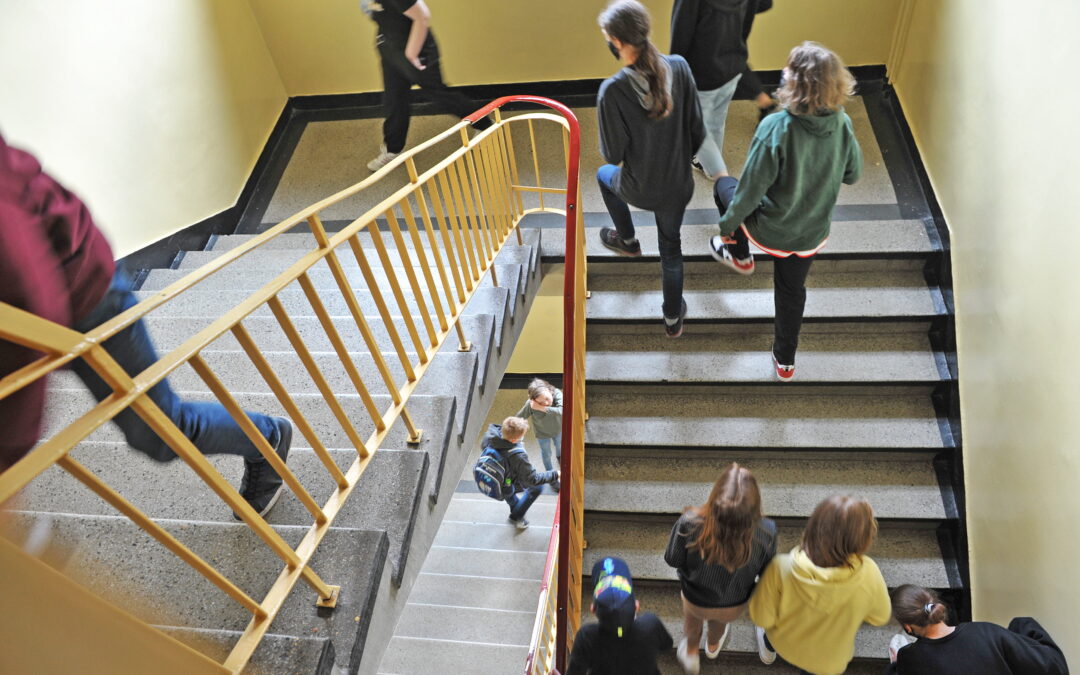Dozens of schools in Poland’s mountainous southern Podhale region have allowed children to return to in-person learning, despite a current order from the government for schools to conduct teaching remotely due to the country’s highest-ever level of coronavirus infections.
The decisions have been justified by claims from parents who say that their children cannot participate in online classes to the lack of reliable internet connections. However, residents of the area – known as Górals, meaning highlanders – have also become known for their resistance to Covid measures.
The education minister last month ordered children from grades five and up to return to online learning until the end of February in an effort to contain a surge in the Omicron variant.
However, the regulations permit headteachers to allow in-person learning for pupils who cannot easily participate in online classes. A few dozen schools in Podhale have used this to justify the return of children to school, reports Onet.
“Currently in our district, we have classes for some of the pupils of higher grades in the primary school in Białka Tatrzańska, Jurgów and Brzegi,” stated Zofia Kuczyńska, head of a school complex in Bukowina Tatrzańska. She explains that the parents of pupils asked for this due to technical difficulties with online classes.
Jadwiga Batkiewicz, director of a school complex in Nowy Targ, also noted that parents report a number of obstacles preventing their children from participating in online classes. “Some have a poor internet connection, others have no connection at all,” she said. As a result, these pupils are given a chance to learn in person.
Some media outlets have labelled the situation as a “parents’ revolt”, comparing it to a similar situation in Podhale early last year when some schools remained open using the same loophole.
“They had enough of remote learning…Internet connections broke, children were falling behind,” a school employee in Ostrowsko told Gazeta Wybrocza. “The parents got together and submitted appeals [for in-person learning],” she added, admitting that schools do not verify such declarations.
Remote learning harmed education, deepened inequality and damaged health, finds Polish state auditor
At around the same time last year, businesses in Podhale protested against coronavirus restrictions, in a movement that became known as the “Góralskie weto” (Highlanders’ Veto). In response, the government promised a support package worth 1 billion zloty for the region.
Podhale also has some of Poland’s lowest coronavirus vaccination rates, with one local vaccine coordinator recently telling Notes from Poland that locals “take pride” in that fact.
The town of Zakopane in Podhale, which is known as Poland’s “winter capital”, saw the country’s biggest spike in COVID-19 cases at the start of this year after it hosted events for New Year’s Eve that saw tens of thousands of people visit.
Main image credit: Anna Lewanska / Agencja Gazeta

Agnieszka Wądołowska is deputy editor-in-chief of Notes from Poland. She is a member of the European Press Prize’s preparatory committee. She was 2022 Fellow at the Entrepreneurial Journalism Creators Program at City University of New York. In 2024, she graduated from the Advanced Leadership Programme for Top Talents at the Center for Leadership. She has previously contributed to Gazeta Wyborcza, Wysokie Obcasy and Duży Format.




















